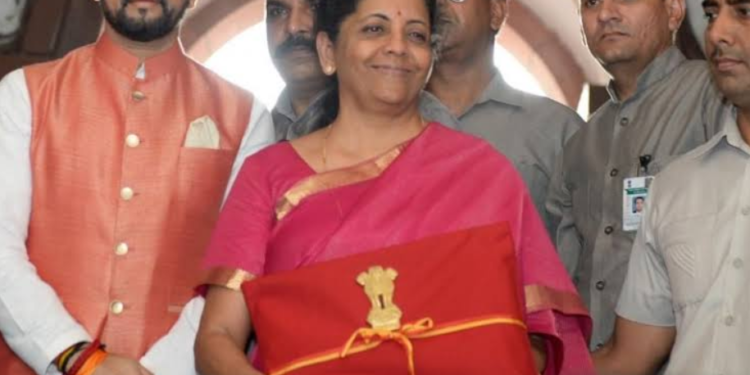Income tax- the tax levied on the individuals and sole proprietorship businesses- is the most publicized tax in any country, as it is related to the middle class- the class whose demands the mainstream media ‘cares’ deeply about- and therefore, the call to minimize or abolish it, is repeated every year when the union government is about to present annual budget.
The taxpaying citizens of India consider themselves ‘holy cow’ and flag the taxpayer status every now and then. Whenever any controversy happens in JNU, the taxpayer who do not agree with them braze that: they are not paying taxes for the education of these ‘anti-nationals’.
Therefore, a dispassionate analysis of the contribution Income tax- which Subramanian Swamy calls “a 19th-century concept”- is required to analyze whether the government can actually abolish it and if it does so, what will be repercussions on the economy and public finances.
Contribution of Income-tax in total Public revenue
The tax to GDP ratio of the country is around 17 per cent, and only 2 per cent of this comes from Personal Income-tax (PIT). In 2017, commenting the collection from PIT, the then Revenue Secretary, Hasmukh Adia, said, “It is abysmally low. If you take the share of GDP, it is only coming to 2 per cent. This would probably be the lowest in the world. 2 per cent of GDP coming from PIT is very very surprising.”
In the total public revenue (centre and states), the contribution of Income tax is around 12 per cent; and in the total public expenditure (revenue+ deficit), its contribution is less than 9 per cent. Therefore, the Income taxpayers who flaunt the tag so brazenly do not contribute even 10 per cent to the total public expenditure.
If you want to put it more blatantly, in a fashion Shashi Tharoor replied to Britain on aid, then put it in this way: the total income tax collection is less than the total government subsidy. The Union government alone budgeted 3 lakh crore rupees in subsidies while the total Income tax collection is budgeted at less than 4 lakh crore rupees.
Even in this 4 lakh crore rupees, 30 per cent comes from sole proprietorship business, and the salaried individuals contribute around 53 per cent. Even if we take the upper bound, the salaried individuals, who flag the tax-paying status so brazenly, will not contribute more than 2 lakh crore rupees, which half of total subsidies.
The Impact of Income Tax abolition on Economy
Subramanian Swamy, the BJP Rajya Sabha MP and former professor at Harvard University, analyzed the problem with Income tax very aptly in a speech at World Hindu Economic Forum. “Today, income tax is the most unbalanced tax in our country. There is no income tax in agriculture and low-income groups, and the rich hardly pay anything because of their chartered accountants. The working class, young entrepreneurs, start-ups are the most harassed. When income tax is abolished, the public will be very happy,” said Swamy.
Today, the Indian economy is suffering from consumption as well as demand slowdown. The economists often argue that there is no need to abolish as this will not address the demand slowdown, which is due to collapse of rural consumption. But, the economists who argue this have neither analyzed the problem correctly nor providing the right solution.
Income tax cuts are required to address not the demand slowdown but the investment slowdown. As visible in the above image, 30 per cent of PIT is paid by Businesses, which are primarily in the MSME sector. Therefore, the abolition of Income-tax will lead to more investment in MSME sector, which will lead to job creation. The MSMEs are suffering since demonetization, and PIT cut will be the best step to address the issue.
The government brought down the corporate tax on the businesses at 23 per cent at the established corporates and 17 per cent from the new manufacturing units, and this step will help in addressing the investment issue, which is a fundamental issue with Indian economy since 2011.
The cut in Income tax will address the investment as well as consumption issue. Given the meagre 8 per cent contribution of PIT in total public expenditure, it will not make a big difference in public finance, and the shortage can be managed through rationalizing subsidies.
This budget has been hinted as a ‘people’s budget’ by certain leaders in the BJP, and since a slowdown does haunt our economy, it is very likely that the budget may involve income tax cuts.



























